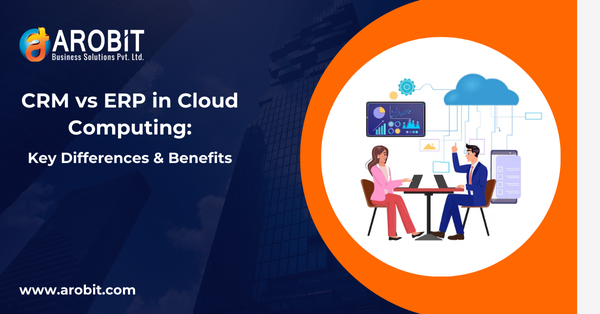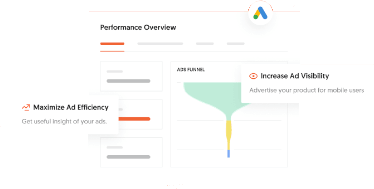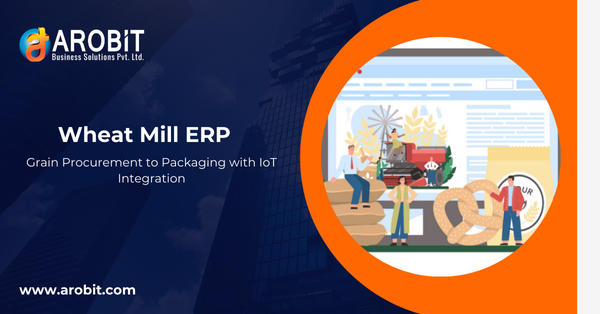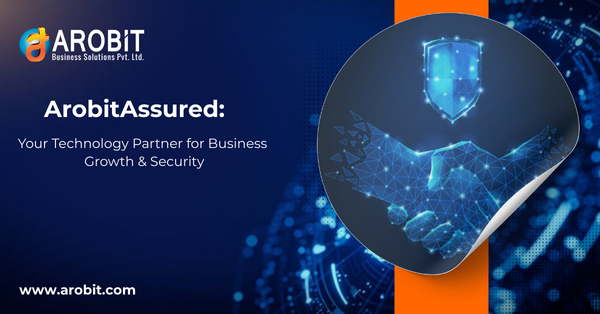These numbers show how cloud computing is catching the attention of businesses around the world. It is being considered in terms of operations and even for enhancing flexibility and overall efficiency.
But, as there are two cloud-based solutions in the name of CRM and ERP software, it becomes confusing for businesses to move ahead. Both the software helps businesses to boost engagement and sales. So, if you are finding it difficult to choose one, below we discuss all the aspects. Read on.
What is CRM in Cloud Computing?
Cloud computing CRM is Customer Relationship Management systems hosted on distant computers reachable via the web. Unlike conventional, on-premise CRM systems, cloud based CRM solutions remove the need for local infrastructure, provide smooth access from anywhere and allow companies to expand fast. Below are the essential features that you get with cloud-based CRM. Check it out:
- Accessibility: Access customer data and manage interactions from any device, anywhere.
- Scalability: Easily add users, modules, or integrations as your business grows.
- Integration: Connect with marketing, sales, and customer support tools for a unified experience.
- Automation: Automate repetitive tasks, follow-ups, and workflows.
- Security: Benefit from enterprise-grade security and regular updates.
Popular Cloud Based CRM Solutions
There are several popular cloud-based CRM solutions that you must know about for complete clarity. check it out.
What is ERP in Cloud Computing?
Cloud computing ERP is Enterprise Resource Planning systems provided as cloud-based services. By means of a unified, web-accessible interface, these systems centralize and automate fundamental business operations including finance, supply chain, inventory, and HR. Compared to conventional ERP software, cloud-based ERP systems offer quicker setup, reduced initial expenses, and real-time visibility. Below are the essential features that you get with ERP in cloud computing. Check it out
- Centralized Data: Unified database for all departments.
- Real-Time Analytics: Instant access to business insights and performance metrics.
- Modular Design: Add or remove modules as business needs change.
- Global Accessibility: Support for multiple locations, currencies, and languages.
- Automatic Updates: Stay current with the latest features and security patches.
Popular Cloud Based ERP Solutions
CRM vs ERP in Cloud Computing: A Comparative Table
Benefits of Cloud Based CRM
- Lower Costs: No need for expensive hardware or IT maintenance.
- Rapid Deployment: Get up and running in days, not months.
- Enhanced Collaboration: Teams can access and update customer data in real time.
- Custom CRM Development: Tailor workflows, dashboards, and integrations to your unique needs.
Benefits of Cloud Based ERP
- Unified Operations: Centralize data and processes across departments.
- Improved Decision-Making: Real-time analytics support faster, data-driven decisions.
- Scalability: Easily expand as your business grows.
- ERP Software Development Services: Customize modules and integrations for industry-specific needs.
Table: Feature Comparison – Cloud Based CRM vs Cloud Based ERP
Key Trends in CRM and ERP in Cloud Computing (2025 and Beyond)
These software solutions will evolve with time and below are certain trends that might follow in the time to come:
- Both cloud based CRM and cloud based ERP platforms are integrating AI for predictive analytics, automated workflows, and smarter decision-making.
- Users expect full functionality on tablets and smartphones.
- Custom CRM development and ERP software development services are increasingly tailored to verticals like manufacturing, retail, and healthcare.
- ERP in cloud computing is leveraging edge computing for faster, more secure data processing close to the source.
Custom CRM Development and ERP Software Development Services From Arobit
Custom CRM Development
Custom CRM development lets companies create CRM software fit for their particular procedures, customer experiences, and industry needs. This strategy guarantees optimum efficiency, improved integration with current tools, and a competitive advantage. Below are the advantages that come along with Arobit with working for your custom CRM development needs.
- Personalized workflows and dashboards
- Seamless integration with ERP and other business systems
- Enhanced data security and compliance
ERP Software Development Services
ERP software development services emphasize designing or personalizing ERP solutions to meet particular company requirements. These services guarantee your ERP investment provides optimum return whether it is integrating with third-party apps, automating particular procedures, or developing industry-specific modules. Below are the primary benefits that you get with ERP software development services by Arobit. Check it out:
- Tailored modules for finance, HR, manufacturing, etc.
- Integration with CRM, eCommerce, and supply chain systems
- Scalable architecture for future growth
Case Study: Cloud Based CRM and ERP Integration
Salesforce is chosen by a mid-sized manufacturing company as its cloud based CRM and Oracle NetSuite as its cloud based ERP. The firm combines both systems by means of custom ERP software development services and CRM development, hence producing a smooth data flow from sales to manufacturing to delivery. Below are the results that came along:
- Sales teams access real-time inventory and order status from CRM.
- Finance and operations teams get instant updates on sales forecasts and customer orders.
- The company reduces manual data entry, improves customer satisfaction, and accelerates order fulfillment.
Final Take
These aspects show how the use of CRM in cloud computing and ERP in cloud computing has completely changed the way businesses are operating. It helps them collaborate and enhance their reach significantly. Using the Cloud based CRM software, businesses can certainly build stronger customer relationships. With the help of cloud based ERP, businesses can streamline their operations and drive efficiency
So, if you are unable to understand which way to go, you can always consider connecting with the experts at Arobit and get all the assistance in terms of investing in cloud based CRM and ERP.
Frequently Asked Questions (FAQs)
Q1: What is the main difference between cloud based CRM and cloud based ERP?
While ERP in cloud computing takes care of fundamental corporate operations including finance, HR, and supply chain, CRM in cloud computing controls client interactions and sales.
Q2: Are cloud based CRM and ERP solutions secure?
Indeed, top companies provide enterprise-grade security, consistent updates, and adherence to industry standards.
Q3: How do custom CRM development and ERP software development services benefit my business?
They offer a competitive edge, fit solutions to your particular processes, and connect with other platforms.
Q4: Can I integrate my cloud based CRM with my cloud based ERP?
Definitely. Integration improves productivity and accuracy by allowing smooth data flow between sales, operations, and finance.
Q5: What are the top cloud based ERP and CRM software options in 2025?
For ERP: Acumatica Cloud ERP, Microsoft Dynamics 365, SAP S/4HANA, and Oracle NetSuite. For CRM: Microsoft Dynamics CRM, Zoho CRM, HubSpot CRM, and Salesforce.
Q6: Is cloud migration suitable for small businesses?
Certainly, SMBs would benefit most from cloud based CRM and ERP systems because of their scalability, less initial expenses, and simple administration.








